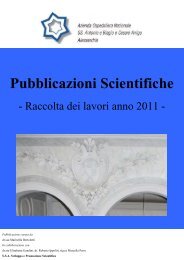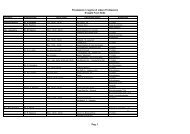Working Paper of Public Health Volume 2012 - Azienda Ospedaliera ...
Working Paper of Public Health Volume 2012 - Azienda Ospedaliera ...
Working Paper of Public Health Volume 2012 - Azienda Ospedaliera ...
You also want an ePaper? Increase the reach of your titles
YUMPU automatically turns print PDFs into web optimized ePapers that Google loves.
<strong>Azienda</strong> <strong>Ospedaliera</strong> Nazionale“SS. Antonio e Biagio e Cesare Arrigo”<strong>Working</strong> <strong>Paper</strong> <strong>of</strong> <strong>Public</strong> <strong>Health</strong>nr. 3/<strong>2012</strong><strong>Health</strong> expenditure has an important role on the response variable as well, the coefficientestimate varying between 42-52%.1. IntroductionThe demand for organ transplants is large and has been increasing over time, and theshortage <strong>of</strong> human organs is a pressing issue to policy makers and governments. Thisissue has motivated researchers to study the determinants <strong>of</strong> organ donation rates and themagnitude <strong>of</strong> their impact on the supply <strong>of</strong> organs.A particular debate has arisen in this context: the matter <strong>of</strong> legislative default oncadaveric organ donation. Following this debate, some researchers have investigated therelationship between the type <strong>of</strong> legislation on organ donation and the number <strong>of</strong>available cadaveric organs for transplantation, mainly after the successful experiences <strong>of</strong>Spain, Austria, Italy and Belgium, which have adopted presumed consent law for organdonation 4 . Under presumed consent law, all deceased people are considered potentialdonors in the absence <strong>of</strong> explicit opposition when alive to donation. However, underinformed consent law, the donors must give formal agreement to potentially becomingdonors before they die.As it has been stressed by some authors (Fevrier and Gay (2004) and Gill (2004), forexample), neither presumed consent nor informed consent respects the will <strong>of</strong> populationas a whole, particularly for people that do not register their will 5 . On the one hand,defenders <strong>of</strong> presumed consent have argued that there are more donations when presumedconsent takes place. On the other hand, opponents <strong>of</strong> presumed consent have pointed outthat this system is neither morally nor ethically acceptable. In fact, the huge majority <strong>of</strong>4 Gundle (2004), Gnant et al. (1991), Michielsen et al. (1996), Matesanz and Miranda (2001), Kaur (1998)and Kennedy et al. (1998).5 Following Gill (2004): “no matter how well the current system (informed consent) is instituted, there willstill be cases in which people who would have preferred to donate their organs will be buried with all theirorgans intact; call these mistaken non-removals. And no matter how well presumed consent is instituted,there will still be some cases in which people who would have preferred to be buried with all their organsintact will have some <strong>of</strong> organs removed, call these mistaken removals.”2



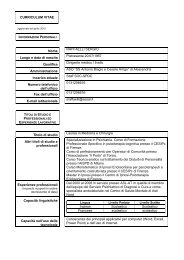
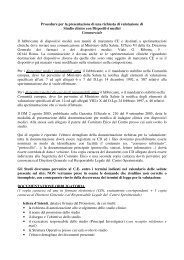

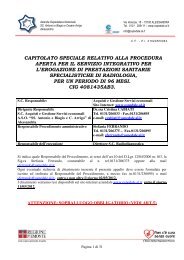
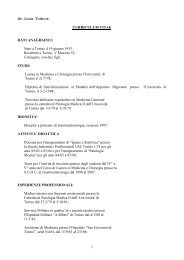
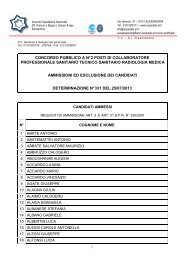

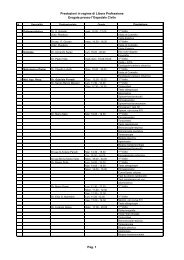


![[torino - 1] lastampa/urc/01 ... 26/10/09 - Azienda ...](https://img.yumpu.com/44058002/1/190x32/torino-1-lastampa-urc-01-26-10-09-azienda-.jpg?quality=85)

